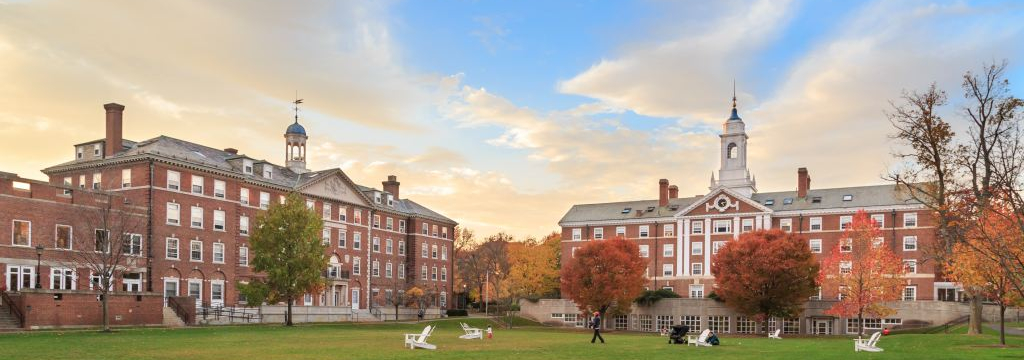Since Harvard University is one of the most competitive and academically rigorous colleges in the United States, applicants know that earning admissions can be a challenge. However, students are often less aware of the challenges they might face once they actually enroll at Harvard. Have you ever wondered about Harvard’s graduation rate?
Graduation rates measure how many students complete required coursework for a four-year program within six years of enrollment. Read on to learn more about Harvard’s graduation rate and how it compares to other colleges.
Why Are Retention and Graduation Rates Important?
Graduation rates are an important statistic because they serve as an indicator of how much support students have and the university’s commitment to helping students succeed. Similarly, retention rates are another valuable metric to consider because they provide a short-term view of how satisfied students are with their college experience. Graduation rates, unlike retention rates, are frequently factored into college ranking lists, like US News & World Report and Forbes.
What Is the Graduation Rate at Harvard?
According to the most recent data available from the National Center for Education Statistics, Harvard’s graduation rate is 98%. The vast majority of Harvard University students complete their degree programs within 4-6 years. In 2020, a total of 1,610 students from the 2014 cohort graduated with a bachelor’s degree from Harvard out of an original class size of 1,650. The remaining 40 students did not graduate within 6 years.
Transfer-Out and Retention Rates at Harvard
Much like Harvard’s graduation rate, the rate of students who stay at the university after their first year is exceptionally high. Approximately 99% of each new cohort go on to complete their second year at Harvard which makes for an incredibly low transfer-out rate of less than 1%.
The high retention and low transfer-out rates contribute to Harvard’s notoriously selective transfer admissions process. In recent years, Harvard has only selected about 12 students through the transfer application process, despite the fact that the pool of applicants regularly exceeds 1,500. As a result, the transfer admission rate to Harvard for students looking to gain transfer admission to Harvard is around 1%.
How Come Harvard’s Graduation Rate Is So High?
Several factors contribute to Harvard’s impressively high graduation rate. The school’s competitive admissions process undoubtedly plays a role. Harvard’s admissions officers review every element of a student’s application and carefully consider how each applicant will contribute to the class they are building. Students who gain admission aren’t just academically qualified; they’ve also demonstrated their passion for the institution, showing the board of admissions that they would thrive on campus.
Harvard also offers many resources that make attending an Ivy League college worth it. Students can gain support and guidance from academic advisors, join student-run clubs, and begin exploring professional opportunities with the help of Harvard’s expansive alumni network. When students enroll at a top-tier college like Harvard University, they will benefit from having a variety of different resources at their fingertips. These resources help students perform well and, as a result, graduate on time.
Additionally, with an endowment fund that has recently topped $50 billion, it’s evident that Harvard has the resources needed to support admitted students in need with financial aid.. The Griffin Financial Aid Office at Harvard provides need-based aid that enables admissions officers to look past an applicant’s ability to pay when making admissions decisions.
Need More Information on How to Get Accepted Into Harvard?
Although gaining admission is exceptionally challenging, Harvard’s graduation rate indicates that students who earn a spot in the class will be supported throughout their time at college. If this Ivy League university has earned a spot at the top of your best-fit list, start by learning what Harvard looks for when making admissions decisions, so you can stand out as an all-star applicant.




